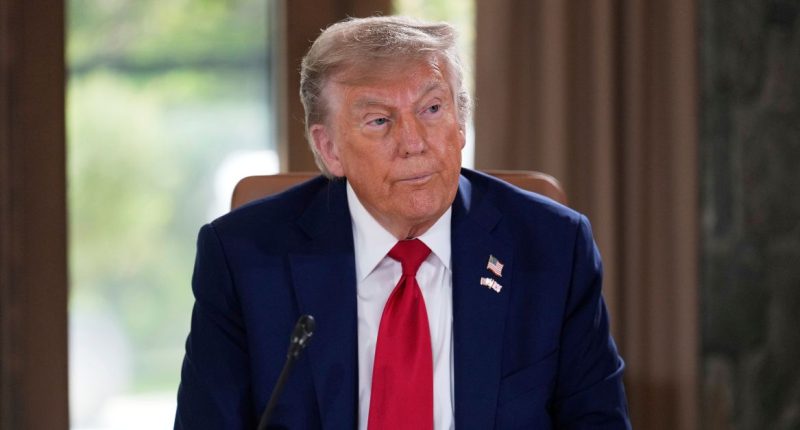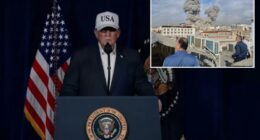Share this @internewscast.com
President Donald Trump participates in a session of the G7 Summit, Monday, June 16, 2025, in Kananaskis, Canada. (AP Photo/Mark Schiefelbein)
According to a whistleblower complaint, the Trump administration allegedly provided incorrect details to a federal judge regarding the swift deportation of immigrant children.
In a two-page document, lawyers representing the whistleblowers—whose identities remain confidential—claim that Angie Salazar, the Acting Director of the Office of Refugee Resettlement (ORR), offered “misleading” statements in a legal declaration about “planned flights to send hundreds of children back to Guatemala.”
The letter specifies that Salazar asserted that 327 children set to return to Guatemala were screened using criteria ensuring they wouldn’t face abuse or neglect, including human trafficking or violence, upon their return.
The whistleblowers say that”s just not true.
Relying on internal ORR figures, the whistleblowers “reasonably suspect” that “at least 30 or possibly more” of these children display signs of having suffered abuse, such as death threats, gang violence, human trafficking, or have vocalized fear about going back to Guatemala. Some of these children are reportedly scared of “potential harm and threats from their own parents.”
In addition, Salazar “knew or should have known of the inaccuracies in her declaration,” the whistleblowers’ letter claims.
The underlying litigation was filed late last month.
In a detailed 25-page complaint, the plaintiffs argue they speak for a group of “hundreds of Guatemalan children at the brink of unlawful deportation.” The lawsuit lists numerous statutory and constitutional breaches, chiefly arguing that the administration’s deportation strategy “breaches the Trafficking Victims Protection Reauthorization Act” by denying children personalized legal counsel and “their opportunity for legal recourse.”
The lawsuit also says the plan stands to violate a statutory mandate to provide “safe and sustainable repatriation and reintegration.”
On September 6, Salazar submitted an eight-page statement, confirming that “ORR assessed the children’s situations for fear of persecution” and concluded all “327 children were eventually deemed eligible for return.”
The declaration goes on to say that ORR used a “best interests framework in determining what constitutes an ‘appropriate case’ for repatriation within the meaning” of the statute governing children’s affairs within the ORR. This analysis, Salazar said, determined “it is appropriate and in the best interests of these children to reunite these children with their parent or legal guardian in their home country.”
Again, the whistleblowers strongly reject those conclusions.
“The whistleblowers obtained information they reasonably believe demonstrates that many children identified for repatriation do not in fact meet the eligibility criteria based on ORR’s data; if confirmed, this would render this evidence provided to the court inaccurate,” the Tuesday letter – also filed as an exhibit on the case docket – reads.
The letter elaborates, at length:
By September 5, 2025, the day before Ms. Salazar’s declaration, at least thirty total, including 20% of a sample size of approximately fifty cases reviewed, had indicators of being ineligible for repatriation based on the excluding criteria. This data was noted and present in ORR’s database at the time of Ms. Salazar’s declaration.
These whistleblowers’ disclosures evidence violations of law, rules and regulations, abuse of authority and substantial and specific danger to public health and safety on a matter of urgent, and potentially life and death, importance.
Late Tuesday, U.S. District Judge Timothy J. Kelly, appointed by President Donald Trump during his first term, extended an extant temporary restraining order barring the planned deportations until 11:59 p.m. on Sept. 18, at the absolute earliest. The court tersely explained the two-day extension was based on “good cause.”















